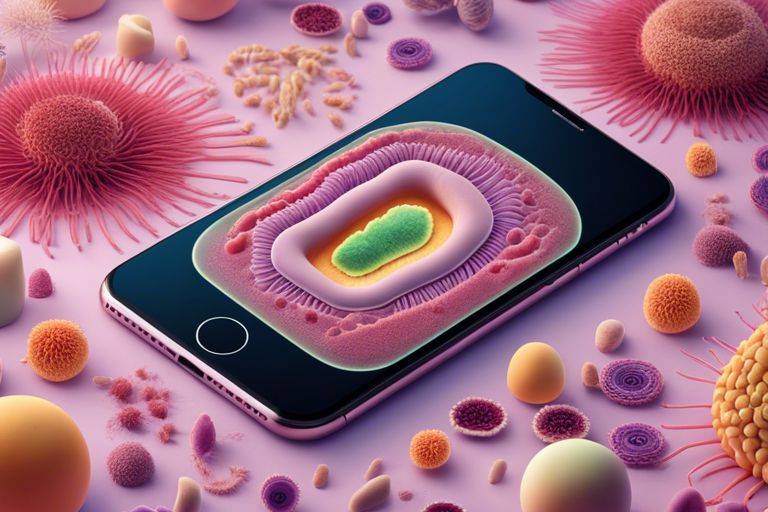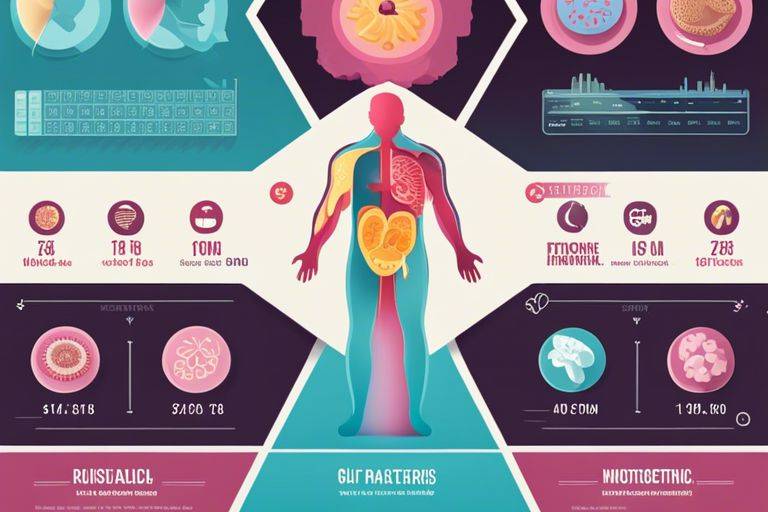Health is a delicate balance within your gut, where trillions of microorganisms coexist. As I explore the intricate universe of your digestive system, I uncover the complex interactions between bacteria, viruses, and fungi that shape your well-being. Join me on a journey to understand the mysterious workings of your gut, from digestion to immunity, and discover the profound impact it has on your overall health.
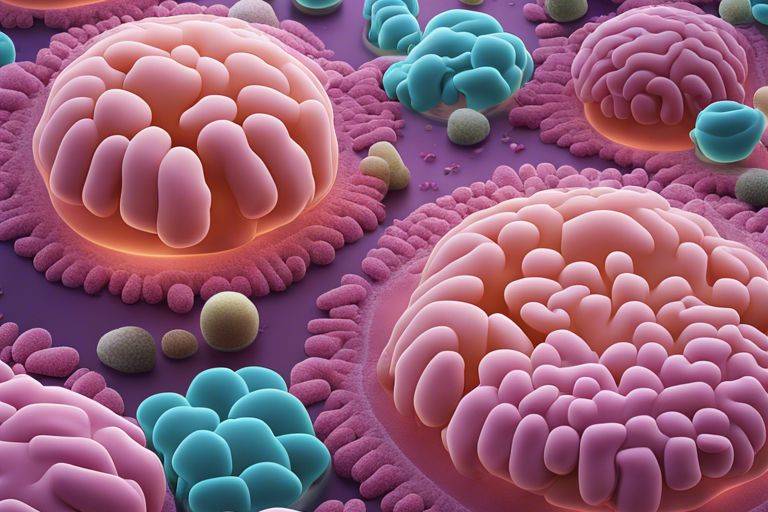
Key Takeaways:
- Microbiome Balance: The gut microbiome is a delicate balance of good and bad bacteria that plays a crucial role in overall health.
- Diverse Microbial Community: A diverse range of microbes in the gut is associated with better health outcomes, including improved digestion and a stronger immune system.
- Microbiome and Brain Health: The gut-brain axis connects the gut and the brain, influencing mood, behavior, and cognitive function.
- Influence of Diet: Your diet directly impacts the composition of your gut microbiome, so a healthy diet can promote a diverse and beneficial microbial community.
- Impact of Antibiotics: Antibiotics can disrupt the balance of the gut microbiome, leading to potential health issues like antibiotic resistance and digestive problems.
- Probiotics and Prebiotics: Consuming probiotics (beneficial bacteria) and prebiotics (food for good bacteria) can help support a healthy microbiome.
- Personalized Gut Health: Each individual has a unique microbiome, so personalized approaches to improving gut health may be more effective than one-size-fits-all solutions.
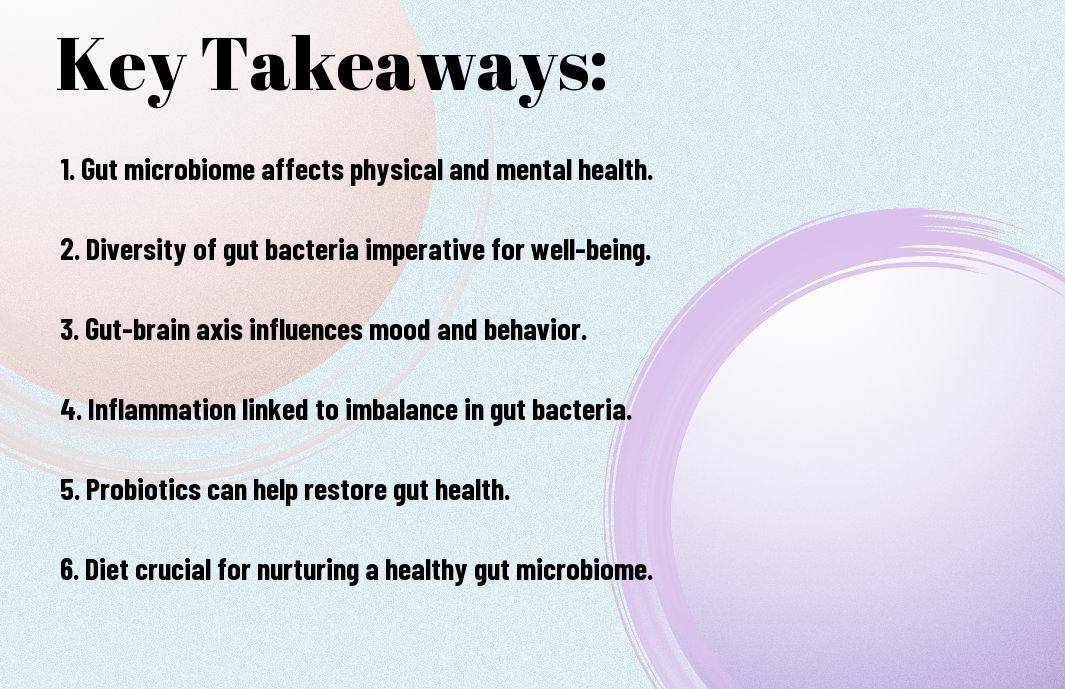
The Unseen World Within
The Gut Microbiome: A Complex Ecosystem
Ecosystems fascinate me. In the microcosmos of your gut, a complex and diverse array of microorganisms coexist in harmony and play imperative roles in your overall health. This dynamic community, known as the gut microbiome, consists of bacteria, viruses, fungi, and other microbes that outnumber your own cells.
The Diverse Inhabitants of Your Gut
On examining the gut microbiome further, I find a rich tapestry of microbial life that not only aids in digestion but also influences your immune system, metabolism, and even brain function. It’s remarkable to think that trillions of these tiny beings are actively working in your favor, helping to break down food, produce imperative nutrients, and protect you from harmful pathogens.
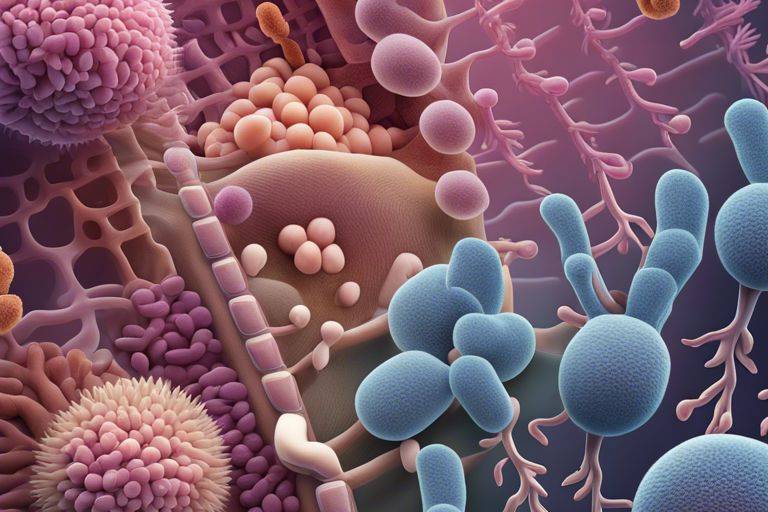
The Gut-Brain Connection
Some fascinating discoveries have been made about the intricate connection between your gut and brain. This relationship is known as the gut-brain axis, a bidirectional communication system that allows the gut and brain to constantly send signals to one another.
The Vagus Nerve: A Highway of Communication
Highway: The vagus nerve acts as a major communication highway between your gut and brain. This long wandering nerve carries signals in both directions, allowing your gut bacteria to communicate with your brain and influence various aspects of your mental and emotional well-being.
How Gut Bacteria Influence Mood and Cognition
Highway: Research has shown that your gut bacteria play a crucial role in influencing your mood and cognition. The composition and activity of the bacteria in your gut can impact the production of neurotransmitters like serotonin and dopamine, which are important for regulating mood and cognitive function.
A healthy gut microbiome can support the production of these important neurotransmitters, while an imbalance in gut bacteria, known as dysbiosis, can lead to mood disorders like anxiety and depression. By nurturing a diverse and balanced gut microbiota through a healthy diet and lifestyle choices, you can positively influence your mood and cognitive health.
The Role of Gut Bacteria in Health
The Immune System: A Delicate Balance
Balance is key when it comes to the immune system and your gut bacteria. Having a diverse and healthy microbiome is crucial for maintaining a strong immune response while also preventing autoimmune reactions. The delicate balance between different types of bacteria in your gut is vital for overall health.
The Impact of Gut Bacteria on Inflammation
To understand the impact of gut bacteria on inflammation, we must acknowledge that imbalanced gut flora can lead to chronic inflammation. This inflammation can contribute to various health issues such as obesity, heart disease, and even mental health disorders. Maintaining a healthy balance of gut bacteria is vital for keeping inflammation in check.
It’s fascinating to note that certain types of gut bacteria produce short-chain fatty acids, which play a crucial role in reducing inflammation in the body. By promoting the growth of these beneficial bacteria through a balanced diet rich in fiber, you can help keep inflammation at bay.
The Link Between Gut Health and Chronic Diseases
Impact studies have shown a strong correlation between gut health and the development of chronic diseases like diabetes, Alzheimer’s, and even certain cancers. The health of your gut microbiome directly influences your body’s ability to fight off these diseases. By nurturing a diverse and thriving community of gut bacteria, you are actively supporting your overall well-being.
Between 70-80% of your immune system resides in your gut, highlighting the crucial role that gut bacteria play in maintaining your health. By prioritizing a balanced diet, rich in prebiotics and probiotics, you can support the growth of beneficial gut bacteria and protect yourself from the risks associated with poor gut health.
The Gut as a Factory
The Production of Vitamins and Hormones
Unlike a typical factory, your gut is a master at producing crucial vitamins like Vitamin K and some B vitamins. These vital nutrients play crucial roles in maintaining your overall health, from blood clotting to energy production. Additionally, the gut churns out crucial hormones such as serotonin, often referred to as the “feel-good” hormone, which influences mood and appetite.
The Breakdown of Complex Nutrients
On the other hand, the gut also excels in breaking down complex nutrients like carbohydrates, proteins, and fats from the foods you consume. This process involves enzymes that help dismantle these nutrients into smaller molecules for easier absorption into the bloodstream.
Nutrients like carbohydrates are broken down into sugars, proteins into amino acids, and fats into fatty acids. These nutrients are then absorbed through the intestinal lining and utilized by the body for energy, growth, and repair. However, an imbalance in this breakdown process can lead to issues like malabsorption of nutrients, impacting your overall health negatively.
The Dark Side of the Gut
The Rise of Pathogenic Bacteria
Many factors can lead to the proliferation of pathogenic bacteria in your gut. The imbalance of good bacteria, poor diet choices, stress, or overuse of antibiotics can all contribute to this dangerous shift. Pathogenic bacteria can cause various health issues and disrupt the delicate ecosystem of your gut.
The Consequences of an Imbalanced Gut
The consequences of an imbalanced gut can be far-reaching. Digestive problems, weakened immunity, inflammation, and even mental health issues can all stem from an unhealthy gut. One must strive to maintain a diverse and balanced gut microbiota to support overall health and well-being.
Imbalanced gut flora can lead to a host of health issues, affecting not just your digestion but also your immune system and mental well-being. It is imperative to nurture your gut with a variety of fiber-rich foods, probiotics, and prebiotics to promote a healthy microbial balance.
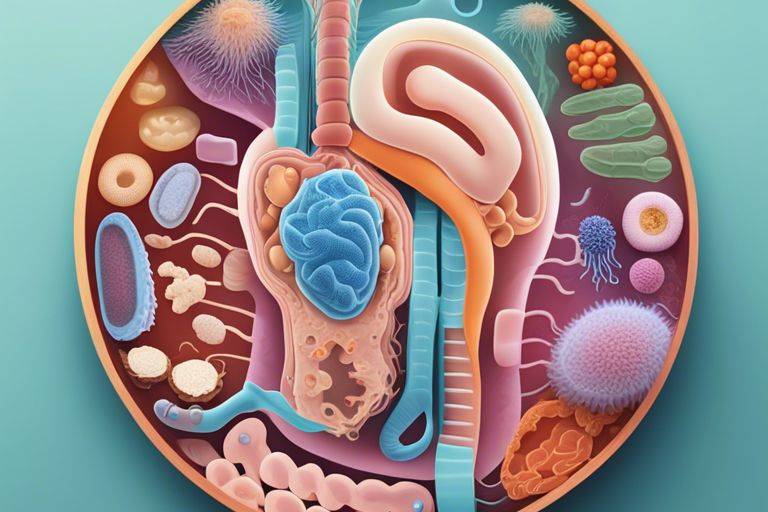
Maintaining Harmony in the Gut
Despite It turns out we have a second brain — and it’s our gut, maintaining harmony in the gut is crucial for overall well-being. The delicate balance of bacteria and microbes in your gut directly impacts your physical and mental health.
The Importance of Prebiotics and Probiotics
Importance: Prebiotics are like food for the good bacteria in your gut, while probiotics are beneficial live bacteria. They work together to promote a healthy gut microbiome and support digestion, immune function, and mental health.
Dietary Choices for a Healthy Gut
Choices: Probiotics can be found in fermented foods like yogurt, kimchi, and sauerkraut. Incorporating fiber-rich fruits, vegetables, and whole grains into your diet can also help maintain a diverse and healthy gut microbiome.
The Role of Stress Management in Gut Health
For: Stress can disrupt the delicate balance of bacteria in your gut and lead to gastrointestinal issues. Managing stress through practices like mindfulness, meditation, and exercise can positively impact your gut health.
For instance, chronic stress can weaken your immune system and increase inflammation in the gut, leading to a range of health issues. By incorporating stress-reducing techniques into your daily routine, you can help support a healthy gut and overall well-being.
To wrap up
Drawing together the intricate and mysterious workings of the gut microbiome, it becomes clear that within each of us lies a universe of diverse microbial communities influencing our health and well-being. As we continue to unlock the secrets of this fascinating microcosm, remember to nourish your gut with a balanced diet, stay curious about its inner workings, and marvel at the intricate dance of life happening within you.
FAQ
Q: What is the gut microbiome?
A: The gut microbiome refers to the trillions of microorganisms that live in your digestive tract, including bacteria, fungi, and viruses.
Q: Why is the gut microbiome important?
A: The gut microbiome plays a crucial role in digestion, immunity, and overall health. It helps with nutrient absorption, synthesizes vitamins, and communicates with the immune system.
Q: How does the gut microbiome affect our mood?
A: There is a strong connection between the gut and the brain, known as the gut-brain axis. The gut microbiome can influence neurotransmitter production and communication, which can impact mood and mental health.
Q: What factors can disrupt the balance of the gut microbiome?
A: Poor diet, stress, antibiotics, lack of sleep, and environmental toxins can all disrupt the balance of the gut microbiome, leading to dysbiosis.
Q: How can we support a healthy gut microbiome?
A: Eating a diverse range of plant-based foods, incorporating fermented foods, managing stress, getting regular exercise, and avoiding unnecessary antibiotic use can help support a healthy gut microbiome.
Q: Can we improve our gut microbiome diversity?
A: Yes, consuming a varied diet rich in fiber, prebiotics, and probiotics can help promote a diverse and healthy gut microbiome.
Q: How long does it take to change your gut microbiome?
A: The gut microbiome is dynamic and can change in response to dietary and lifestyle factors in as little as 24 hours, but significant changes may take weeks to months to establish a new microbial balance.
